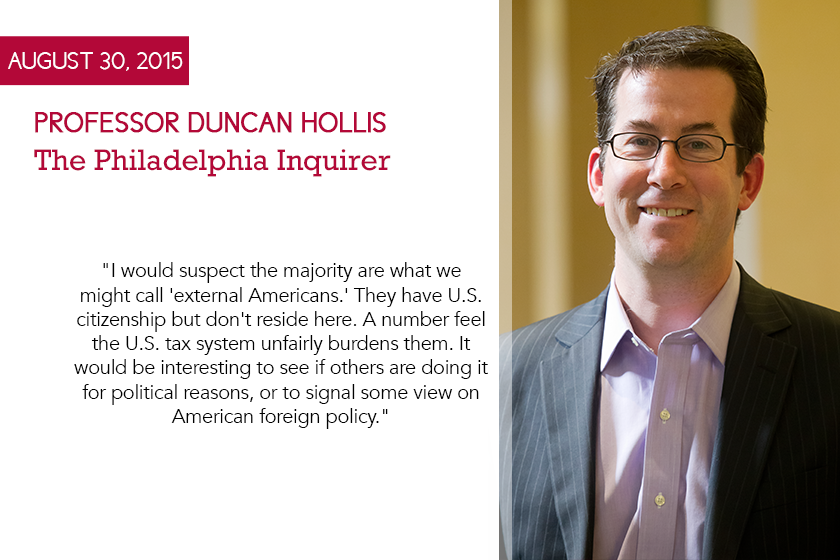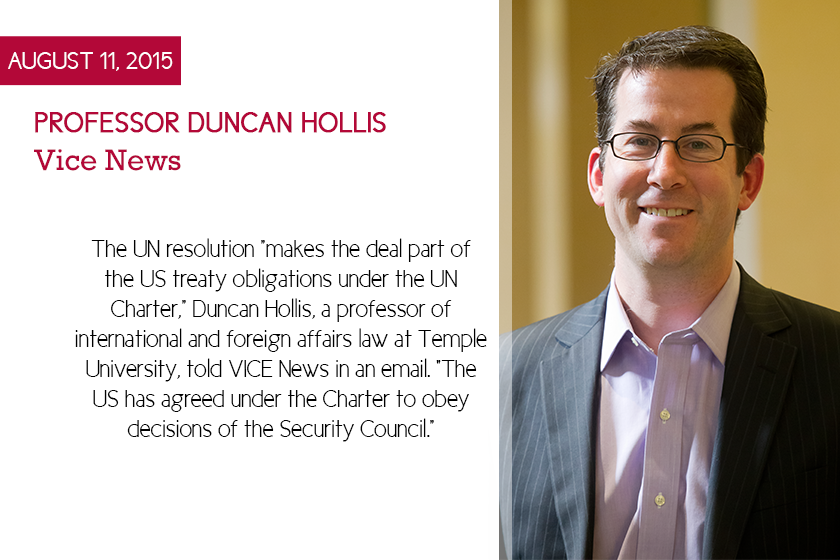Justice Scalia’s Rule of Law Efforts
Justice Scalia’s passing comes as a shock and is generating tributes across ideological lines. Indeed, whether you agreed with his opinions or not (and I was not a fan of his thinking on cases likeSosa or Bond), Justice Scalia’s opinions deserved to be read. Lines like “never-say-never jurisprudence” and “oh-so-close-to-relevant cases” are some of my personal favorites. Readers should feel free to add their own in the comment section. In the meantime, I wanted to pay tribute to a side of Justice Scalia that has garnered relatively little attention — his dedication to promoting the rule of law. For the last sixteen years, Temple Law has run a rule of law program in Beijing hosted at Tsinghua University’s School of Law. We offer an LLM to classes of 50 Chinese judges, prosecutors and lawyers, in an effort to acquaint them with the U.S. legal system and the rule of law more generally. As part of the program, the Chinese students visit Philadelphia for the summer, which includes a day trip to D.C. And nearly every year the highlight of that D.C. …







